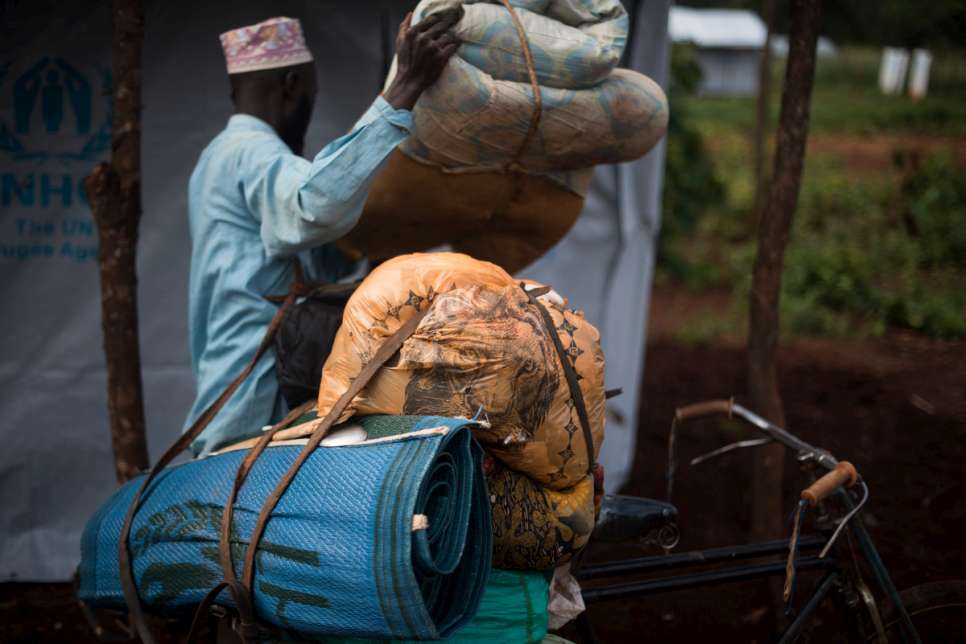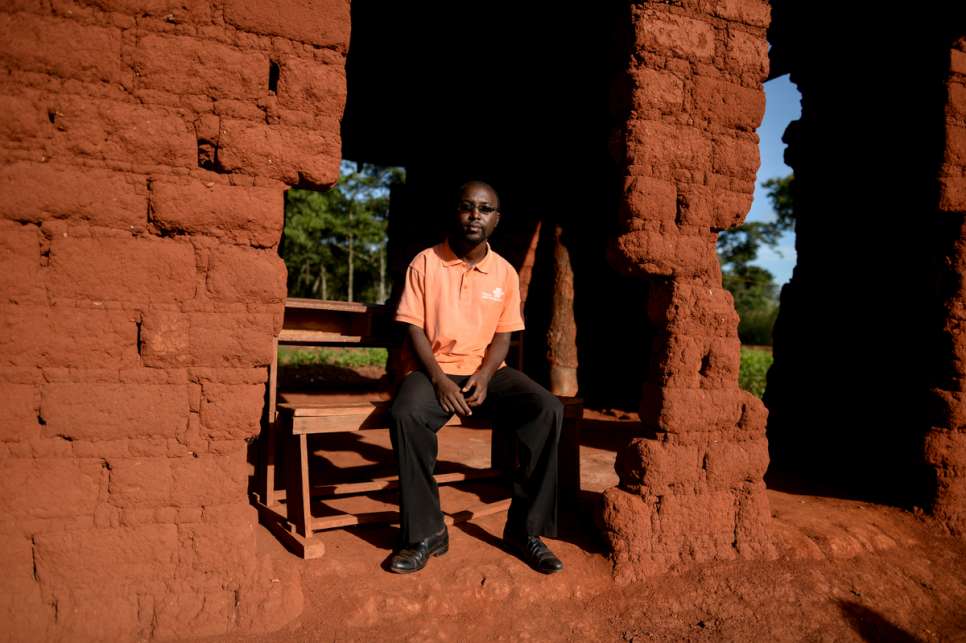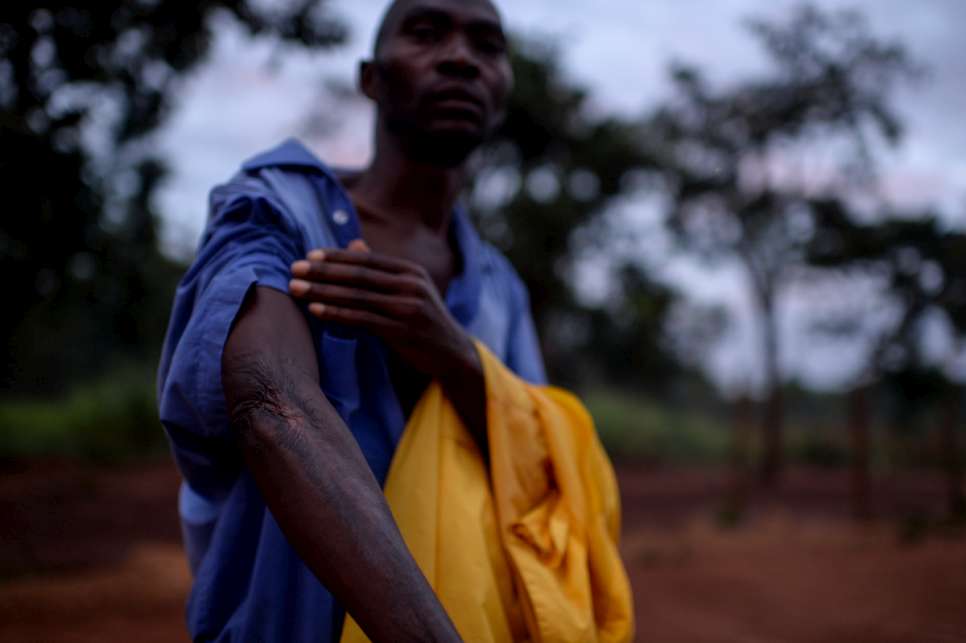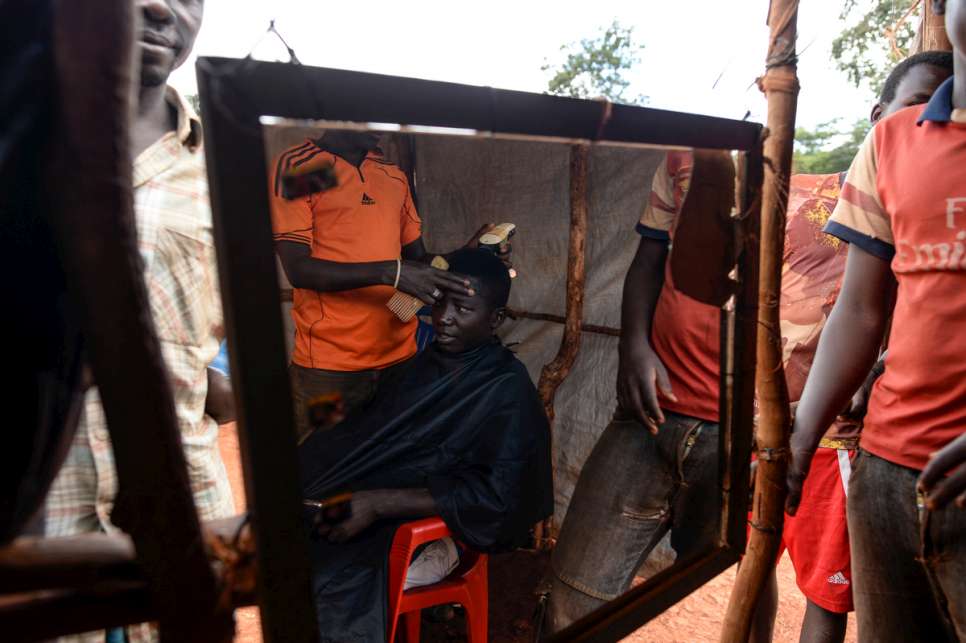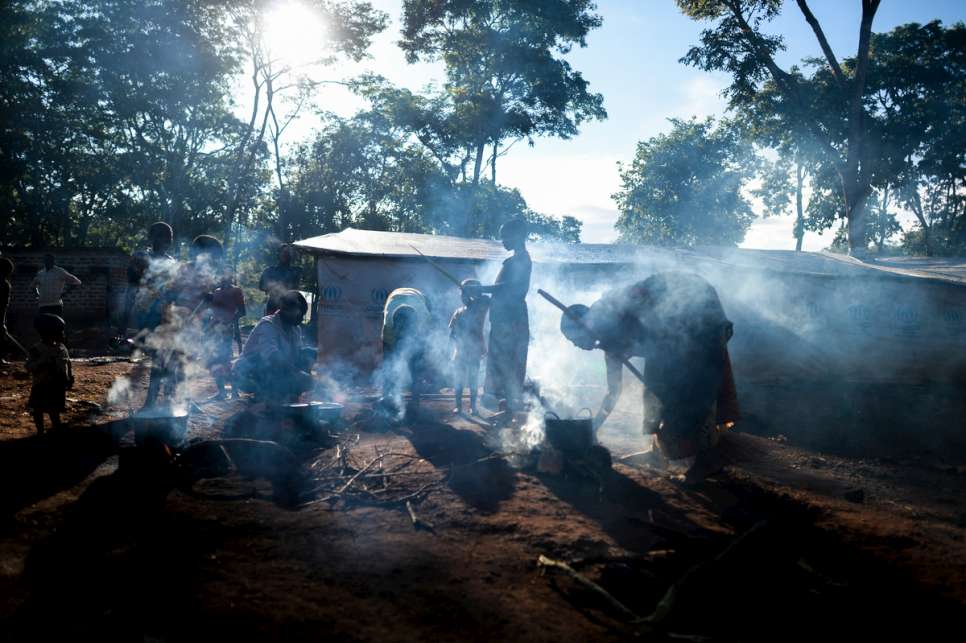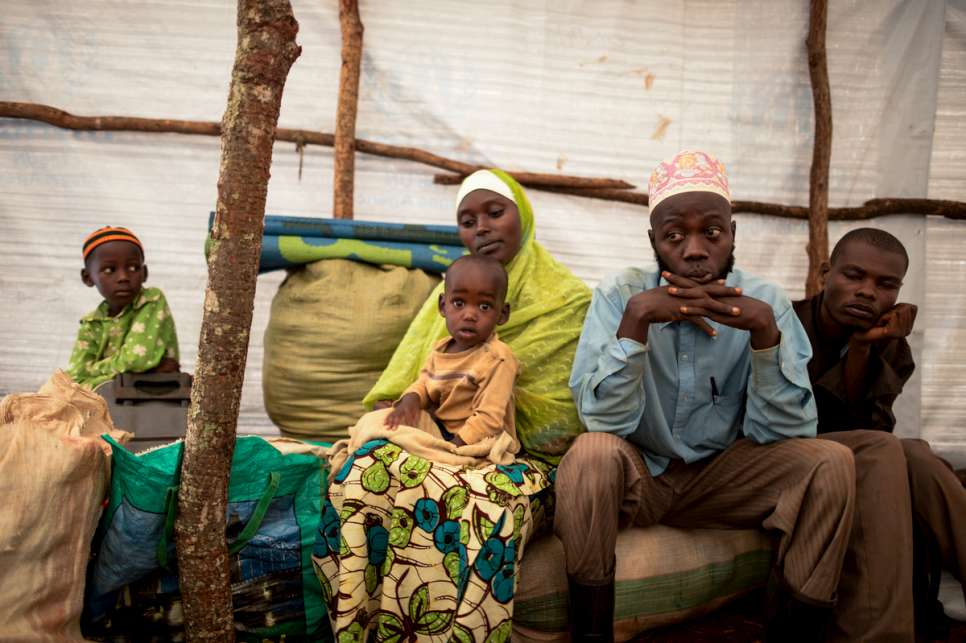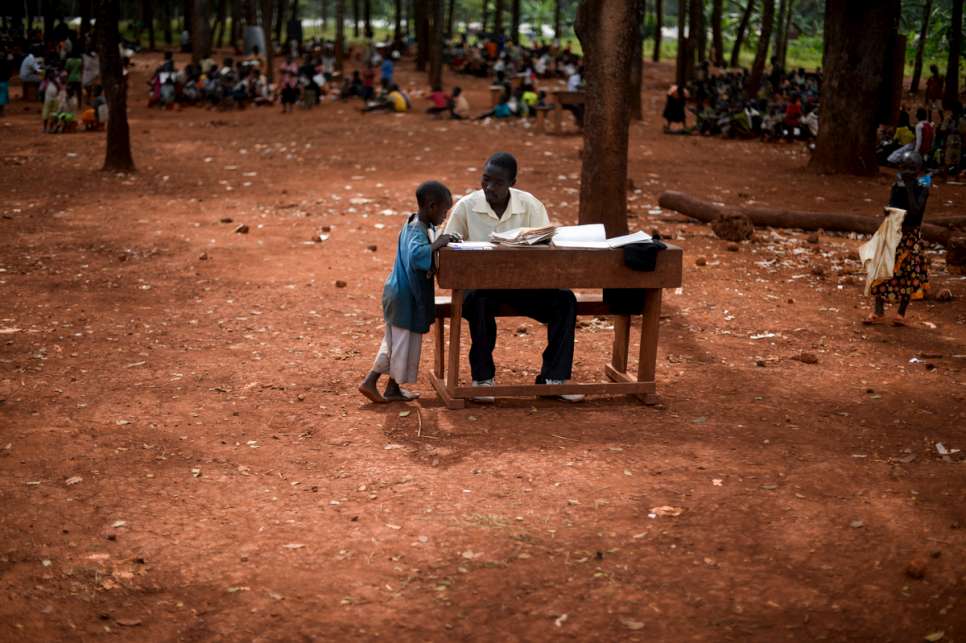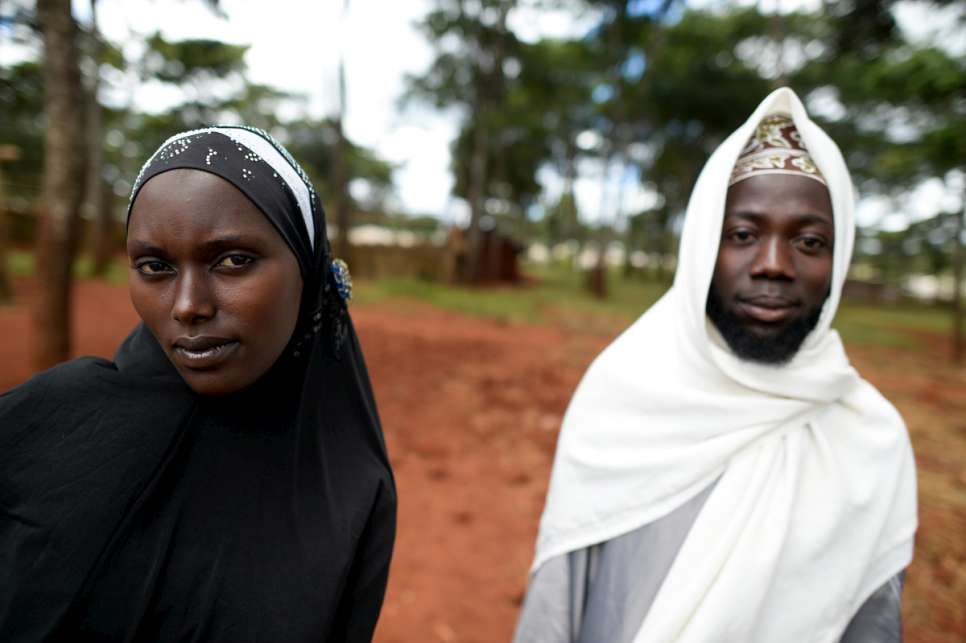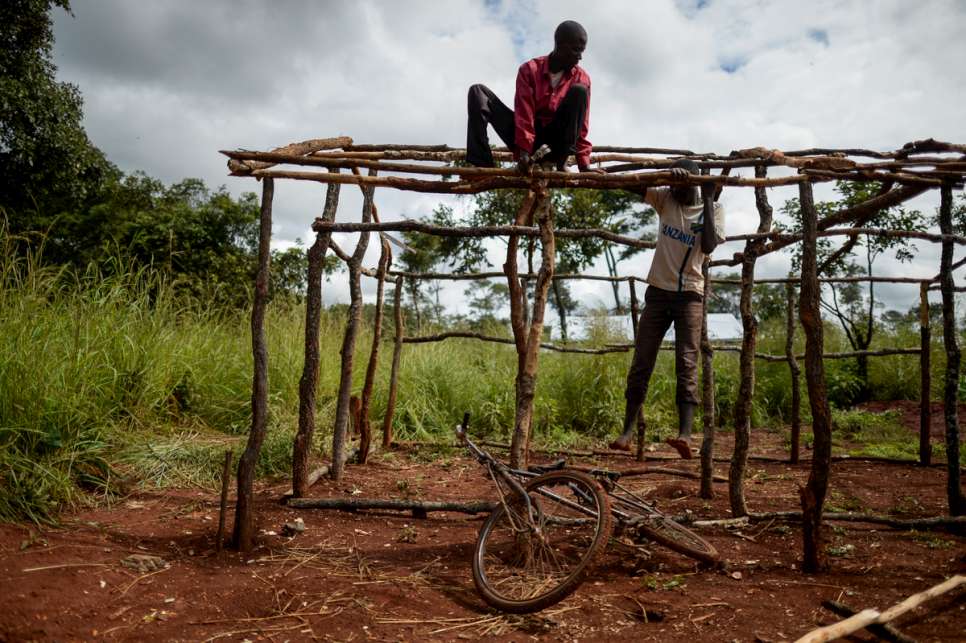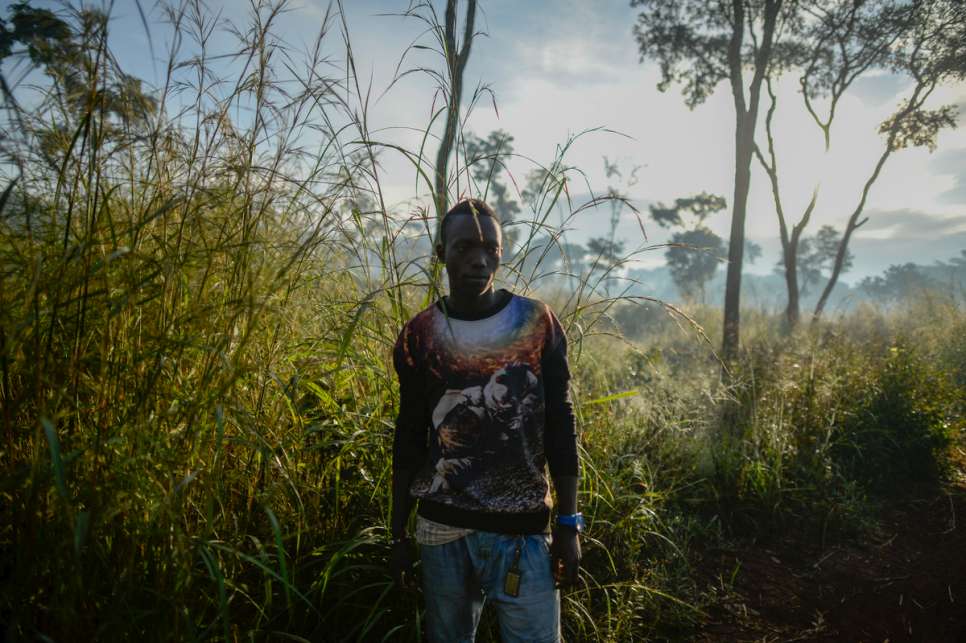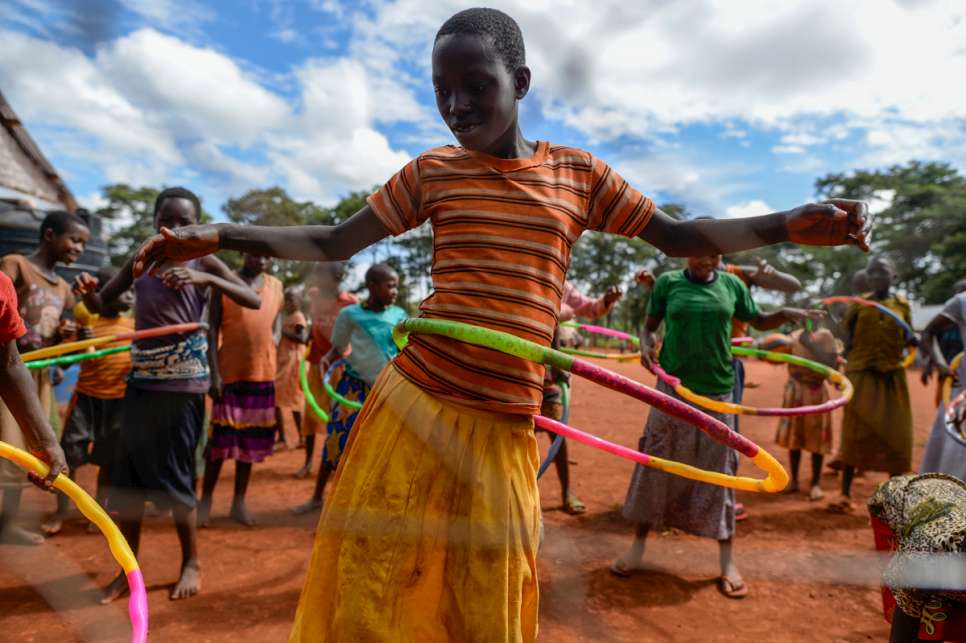Burundi Refugees Tell of New Horrors
A year after political protests erupted in Burundi, those who ran for their lives to neighbouring Tanzania bear tales of mass murder, torture and imprisonment.
After his family were killed in Burundi, 'Ernest' fled to Tanzania.
© UNHCR/Benjamin Loyseau
Friends intercepted scrap-metal dealer Abdul Yamuremye as he walked to his house in a middle-class suburb of Bujumbura, Burundi’s capital, with his wife, Hadija, their six-year-old son and their infant daughter. “Don’t go home,” they warned. “Men with guns are there.”
They spent that night, the Thursday before Easter, at a mosque. The next day, Abdul went home, alone, to find his house a morgue for his two brothers, a friend who stayed with them, and her three children.
He found the body of his friend in the kitchen, killed as she cooked dinner – beans, rice, chips. “There was blood everywhere, but otherwise it was as it should be – the food, the pots, the tray,” says Abdul, 32.
In the sitting room, his teenage brothers, 15 and 19, were shot dead as they watched television. Beside them, one of the children, a boy of seven, lay riddled with bullet wounds. “There were probably watching football,” Abdul says. “He loved football.” Outside were the bodies of the boy’s two sisters, one just turned 10, the other a two-year-old. No one was spared.
“There was blood everywhere, but otherwise it was as it should be – the food, the pots, the tray.”
“There had been lots of strange boys around the neighbourhood,” he says. “They looked at me, then they rubbed their hands together like they were pretending to wash clothes. They said, ‘We’re going to clean you people from this place like this.’ ”
A year ago this week, Pierre Nkurunziza, Burundi’s president, said he would run for a third term in office, despite constitutional two-term limits. His announcement, later approved by the courts, sparked street protests and then deadly security crackdowns. A thuggish ruling party militia called the Imbonerakure swept the country hunting opponents, spawning reprisal gangs manned by armed fighters opposed to the president. Hundreds died.
In the weeks that followed, tens of thousands of people fled the small central African country. Today, more than a quarter of a million Burundians have sought safety in neighbouring countries, most of them – 135,000 – in Tanzania, among them Abdul and his family.
The number of refugees fleeing Burundi has slowed to roughly 280 a day on average since the start of 2016, compared to 2,500 who arrived every day in Tanzania alone during the height of the refugee crisis in May 2015. At the same time, reports from inside the country dried up. To the outside world, it appeared that the situation was stabilizing.
However, the trickle of refugees who are still managing to escape bring with them stories that paint a very different picture of life in Burundi.
During a week talking to people in two camps for Burundian refugees in Tanzania, reporters from UNHCR, the UN Refugee Agency, heard account after account of fresh attacks, killings, torture and fear, some as recently as early April.
Why they came for Nolasque Nduwimana, a 31-year-old history teacher at a Catholic boarding school for girls, was obvious. “Yes, I supported the opposition,” he said. “Why should that mean I should be killed?”
Friends warned him that his name was at the top of a hit list drawn up at local ruling party committee meetings. He planned to leave, but wanted to finish marking his students’ exams first. He almost left it too late.
“They said, ‘We’re going to clean you people from this place like this.’ ”
On Good Friday this year, close to midnight, five men broke into his room, forced him to the floor, pointed two machine guns at his head, and were instructed: “Shoot him.” In that moment, another teacher in a room down the corridor called out and distracted the gunmen. Nolasque took the split second chance to save his life, and fled, barefoot, in his pyjamas, grabbing his spectacles from the nightstand as he leapt through the shower-room window and ran.
A bookish man, more used to libraries than forests, he spent three days sleeping rough and moving slowly to the border under cover of night. Disguised as a priest – “The Church is all the militia respect any more,” he says – he slipped into Tanzania.
For the first days in a refugee camp here, he refused to leave his tent. Even now, his lips stiffen as he talks, betraying a struggle not to break down. This camp is too close to Burundi, he says. He wants to be moved further away. “People can find me here,” he says. His lips tighten.
Their mental scars are fresh, and need attention. UNHCR, with partners led by the Tanzanian Government, is providing basic counselling and psycho-social support to refugees, but it needs more support.
“The problem is that our donor appeal is so overwhelmingly underfunded that we are only barely able to provide shelter, household items, latrines, showers. I’m talking about the very basics,” says Dost Yousafzai, the head of UNHCR’s sub-office in Kibondo, in Tanzania’s Kigoma region, close to the Burundian border and to the three refugee camps.
To respond to the Burundi situation across the entire central African region, UNHCR estimates it needs US$314 million. So far, donors have offered only US$46 million, or around one dollar of every seven that is needed.
“With that level of support,” Yousafzai continues, “it’s things like counselling support for people who have survived horrific experiences, or education for children, or care for the disabled and the elderly, or protecting the environment around the camps, which very sadly fall by the way side.”
The need is as deep as the stories are relentless. Manase Gahungu, a hospital pharmacist, was imprisoned for three months, and watched cellmates tied in ropes and taken outside at night. They never returned. He was tortured repeatedly, with men using knives to cut pieces of his flesh from his arm like meat. He eventually escaped after paying guards a US$600 bribe.
“The problem is that our donor appeal is so overwhelmingly underfunded.”
Sabine, a grandmother in her 50s who asked that her real name not be published, knows that her husband was killed because he was “loyal, and spoke up for injustice.” She never got to bury him because she had to flee. “I have nightmares the dogs ate his body,” she says.
Another man, a former security guard who gave his name as Davide, saw minibuses used to carry bodies he thinks were to be buried in mass graves in the forest. “They were so many they were tied together with ropes so they did not fall out,” he says.
For Ernest, a refugee whose parents and three young sisters were killed when a grenade was tossed into their home, says the men had come again and again, demanding money that his father did not have. They said it was membership dues to join the ruling party. He thinks it was simple extortion.
“The world needs to be closer to the people of Burundi, especially those who are inside the country,” he said. “People are dying today, and they will die tomorrow.”



